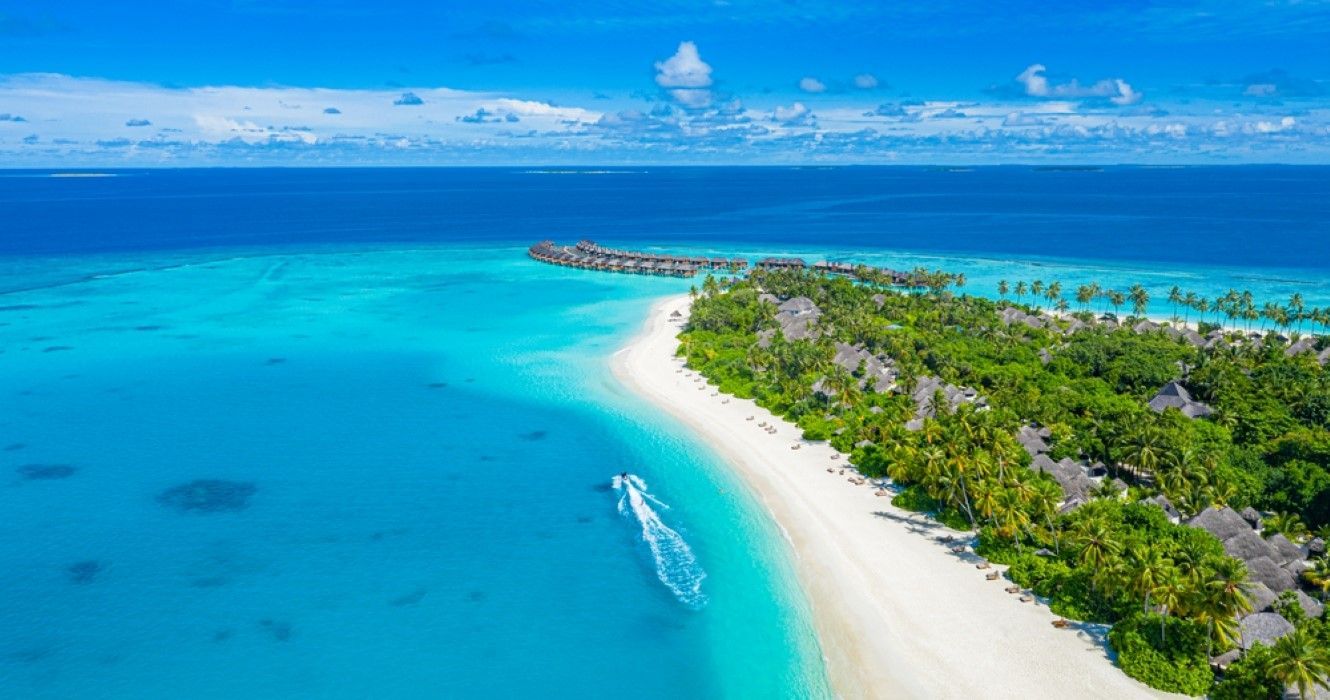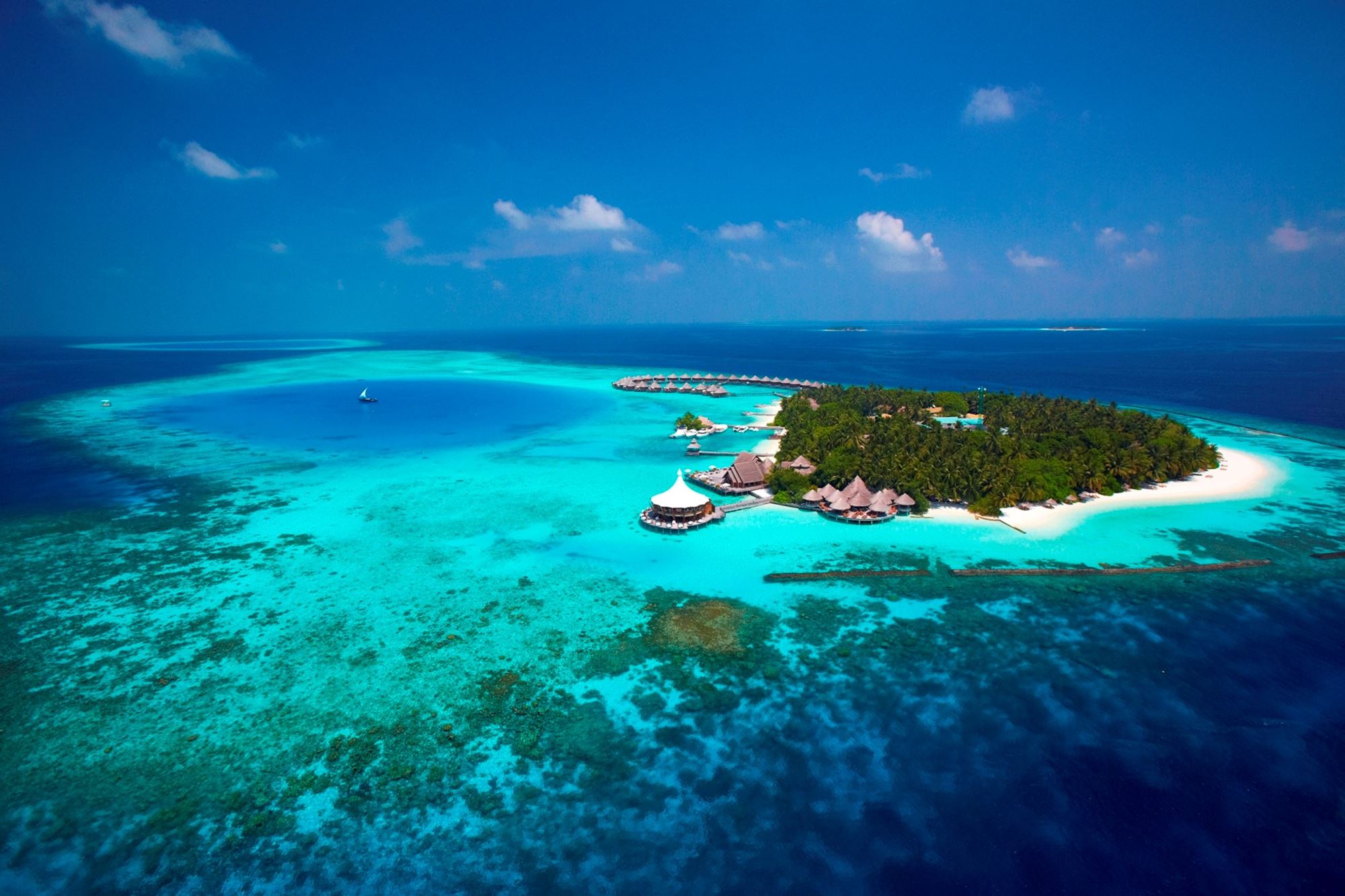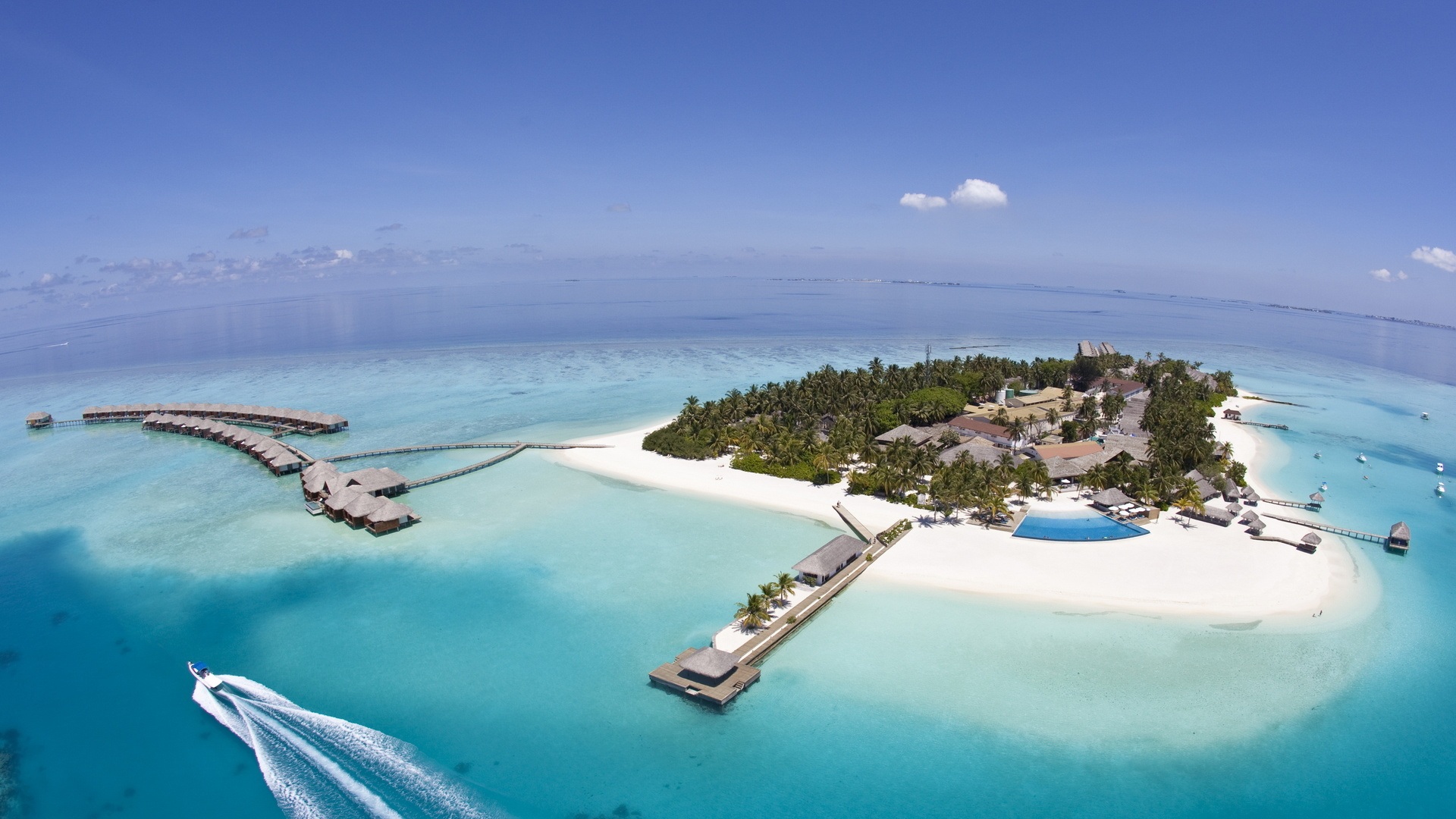Maldives Information Guide
Detailed information about Maldives, one of the world's most beautiful vacation countries. Geography, history, culture and practical information.

Maldives: Pearl of the Indian Ocean
Maldives, one of the world's most beautiful vacation countries, enchants with its hotels on small islands, magnificent nature and ocean views.
Paradise itself, just its name is enough to inspire dreams. And these otherworldly beauties make this dream come true.
When viewed from the sky, Maldives resembles an emerald necklace on a navy blue background. When the purity of its crystal-clear lagoons combines with its fine white sandy beaches and magnificent aerial views, Maldives becomes a true earthly paradise.
Names and Meanings of Maldives
Maldives is much more than a paradise with its turquoise waters and sandy beaches; it carries deep meaning in its name. From ancient traders to today's travelers, even the Maldivians themselves, each has given this country a poetic and beautiful name that reflects its essence.
Dhivehi Raajje
The Maldivians, the indigenous people of Maldives, call it "Dhivehi Raajje" in Dhivehi, the country's language, meaning "Kingdom of Islands".
Garland of Islands
The name "Maldives" recalls "Maladiv", a Sanskrit word that early Indian traders brought to the country, literally meaning "garland of islands".
Pearls of the Indian Ocean
Since tourism began in the country in the 1970s, they have been called "Pearls of the Indian Ocean" by today's travelers.
26 Atolls, 1200 Islands
Located in the heart of the Indian Ocean, south of India and west of Sri Lanka, Maldives owes its unique beauty to a geological formation that has no equal in the world. The entire 823 km2 Maldives archipelago consists of approximately 26 atolls in total, with approximately 1,200 small, perfectly shaped tropical islands and countless coral reefs at its center.
Of the 1,200 islands, approximately 200 are used as settlements, 700 are completely abandoned, and approximately 200 islands are reserved for hotels.
Islands can be small in size, with diameters of only a few dozen meters. The largest ones, like the capital Male which is more than 1.5 kilometers long, can sometimes reach several kilometers.
Even larger, Gan Island, the largest in Maldives, is located in the south of the country, in the magnificent Addu Atoll, 6 kilometers long and 3.4 kilometers wide.
History of Tourism in Maldives
Maldives, which was a hidden destination for a few knowledgeable travelers and divers in the early 1970s, opened its first international hotel, Kurumba, in 1972.
Very few of these travelers could resist its beauty and most talked about it when they returned.
Tourism boom in Maldives continued rapidly in the following years. Many uninhabited islands, especially those closest to the capital Male, were converted into hotels to meet the increasing number of visitors.
How Did Maldives Become a Showcase for Luxury Hotels?
Until the early 1990s, Maldives offered island resorts with simple comfort and authentic charm with only a few 4 and 5-star facilities. Today, the archipelago hosts one of the regions with the highest luxury hotel density in the world, and its islands host some of the most prestigious names in the international accommodation industry. Maldives hosts more than 1.5 million international visitors annually.
Population and Language in Maldives
Maldives has a population of over 400,000, mostly consisting of Indians, Sri Lankans, Arabs and Africans. Population density remains low on most coral islands; as almost a quarter of the total population lives in the small capital Male, which is 2 km long. The official language is Dhivehi or Maldivian, but English is widely spoken in the capital and hotels.
Religion in Maldives
Sunni Islam, representing 99% of the population, is the official religion. Maldivian authorities will confiscate any religious figurines (such as Buddhism) or any religious symbols (cross, etc.) that you may have in your luggage. It is also forbidden to bring alcohol to the archipelago.
You will be amazed by the turquoise variety you will photograph! If you are traveling to a local island, be sure to ask permission from the people you want to photograph.
Traditions and Customs in Maldives
Muslim traditions are respected. These include the prohibition of alcohol and pork and the month of Ramadan. Pork and alcohol are served in hotels; some have notable wine cellars.
Cuisine in Maldives
Maldives hotels offer a wide range of both international and local dishes, usually prepared with fish, fresh seafood and rice. The most popular fish is skipjack, a type of tuna with red meat. In addition to high-quality meat and vegetables imported for tourists, beautiful tropical fruits are also available.
Some of the most popular dishes include mas huni (mixture of tuna, grated coconut, onion and hot pepper), bajiya (a pastry filled with fish, coconut and onion), theluli mas (large pieces of fish seasoned with hot pepper and garlic and fried) and roshi (unleavened bread).
Accommodation
The general practice is to check in to your room from 14:00 on the day of arrival and check out by 12:00 at the latest on the day of departure, sometimes even by 10:00 in the morning. Checking out outside these hours is usually subject to an additional fee not included in the prices. In Asia, triple rooms are usually double rooms with extra beds. Some hotels may ask for your credit card information upon arrival to cover additional personal expenses (minibar, laundry).
Transportation in Maldives
Arrival in Male: International flights land at Male International Airport, located on an island opposite the capital Male. A representative from the hotel you have booked will meet you and help you board the boat, plane or seaplane (depending on the hotel). There may be a short waiting time at the airport for planes and seaplanes.
Shopping
All hotel shops and tourist spots on the islands offer souvenirs. In addition to famous postcards, photo albums and t-shirts, you can also find spices, Madras fabrics and carved objects, paper or wooden paintings, coconut shell spoons, wooden measuring cups, coconut graters, ceremonial knives and handicrafts such as mats.
Communication in Maldives
You can easily make calls from your hotel. Mobile phones also work well, but the charges are high (talk to your phone company before leaving!). You can find stamps and postcards in shops or hotel reception on vacation islands.
Health
No vaccination is required. Bring your own medicines and mosquito repellent. It is essential to wear high protection factor sunscreen and sunglasses. Don't drink tap water. Don't fly within 24 hours of completing a dive.
Money in Maldives
The country's national currency is the Maldivian Rufiyaa. However, in reality, you will never see this because everything in hotels is in dollars! Traveler's checks and credit cards (Visa, Mastercard, American Express) are accepted in hotels.
Maldives Climate
The climate is tropical, hot and humid, with two short monsoon seasons in May/June and October/November. Also, preferably choose cotton, light clothing. Bring elegant clothes for dinner at 5-star hotels. Don't forget to buy sea shoes to avoid cuts on corals.
Frequently Asked Questions
Maldives consists largely of corals formed around ancient underwater volcanoes. They are located on the Chagos-Laccadive Ridge in the Indian Ocean.
Maldives has approximately 1,200 islands spread across 26 natural atolls. Only 200 of these are inhabited by Maldivian residents and nearly 200 are reserved for hotels and resorts.
Maldives is a chain of coral islands extending approximately 870 kilometers south of India and Sri Lanka. The country is quite flat and its highest natural peak is only 2.4 meters above sea level.
The smallest vacation islands in Maldives include Kandolhu, Naladhu Private Island and Kudadoo. They are only 200 meters long.
Tourism in Maldives began in 1972 with the opening of Kurumba, the first resort. Since then, the archipelago has become one of the world's most popular luxury destinations.
No. Only 200 of the 1,200 islands are used as resorts. Others are used as settlements, for agricultural purposes, or are completely untouched.
WTS Luxury Collection
AuthorYou Might Also Like These Discoveries

Magnificent Hotels with House Reefs in Maldives
When choosing hotels in Maldives with their own house reefs, there are important factors to consider. These properties offer snorkeling experiences that allow you to observe marine life up close in the ocean depths.

Maldives: Overwater Villa or Beach Villa?
Overwater villa or beach villa in Maldives? This is a question everyone asks themselves when planning a vacation on an island in the Indian Ocean.